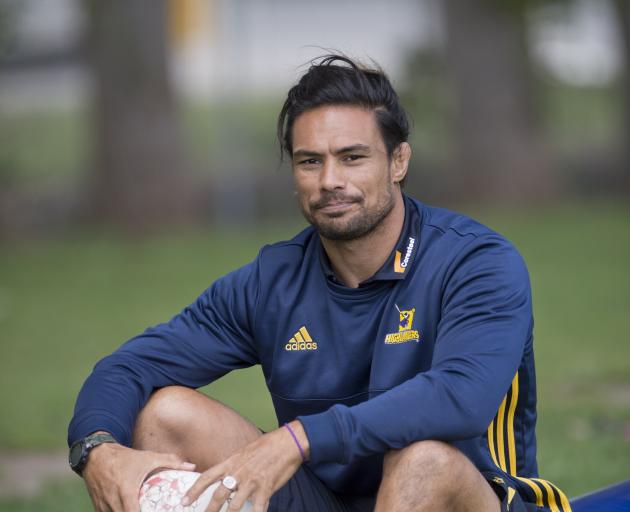Lifestyle
Shane Christie Remembered as Warrior of Rugby and Advocate

Shane Christie, a former flanker for the Tasman Mako and Highlanders, was remembered for his courage and commitment to rugby player welfare during a heartfelt funeral service in Nelson. Christie, who passed away suddenly at the age of 39 last week, left a profound impact on the rugby community, both as a player and an advocate for health issues related to the sport.
Christie’s career ended prematurely in 2017 due to severe post-concussion symptoms. He had become a vocal proponent for greater awareness and prevention of brain injuries, openly discussing his concerns about chronic traumatic encephalopathy (CTE). This neurodegenerative disease is associated with repeated head trauma and can only be definitively diagnosed posthumously through brain tissue examination.
The memorial at the Trafalgar Centre was attended by family, friends, former teammates, and notable figures from the sport, including former All Blacks. They gathered to pay tribute to a man described as a humble leader who profoundly influenced every team he represented. Tasman Mako captain David Havili highlighted Christie’s dedication, stating, “You taught us the values of mateship, a team-first mentality, and standing up for your people.”
Christie’s former partner, Holly Parkes, shared insights into his struggles with concussion symptoms, which he had been battling for nearly a decade. “He described it as an electrical circuit board, misfiring, giving him shooting pains and a constant ache that never left him,” she recalled. Parkes expressed her deep regret over not being able to protect him during his playing career and emphasized the need for better safeguards for players.
A staunch advocate for player welfare, Craig Morice, a lawyer who became friends with Christie, recalled their initial meeting nearly a decade ago during career negotiations with New Zealand Rugby (NZR). In 2017, as Christie’s health deteriorated, Morice sought an urgent appointment for him with a neurological specialist. The specialist ultimately advised Christie not to return to rugby, prompting him to delve deeper into the issues surrounding concussions and player safety.
In collaboration with NZR and the New Zealand Rugby Players Association, Christie spearheaded efforts for an independent review of concussion management in the sport. While a comprehensive report was completed in April 2019, its findings have not been made public. Morice noted, “Shane was adamant that the terms of reference had to include protections for future players, not just himself.”
The legacy of advocacy continued after the loss of his friend and former teammate, Billy Guyton, in 2023. Christie co-founded the Billy Guyton Foundation to raise awareness about brain injuries in rugby and to push for enhanced player care protocols. Guyton was the first professional rugby player in New Zealand diagnosed with CTE in 2024.
Christie’s contributions to rugby extended beyond advocacy. Born on July 23, 1985, in Palmerston North, he showcased his talent from a young age. After moving to Wellington and attending Upper Hutt College, he began playing club rugby for the Nelson Rugby Football Club. His professional debut for the Tasman Mako came in 2010, eventually leading to his role as team captain during a successful era that included a championship title in 2013.
His impressive performances earned him spots with the Crusaders and Highlanders, where he played a crucial role in winning the 2015 Super Rugby title. Christie also represented the All Blacks Sevens and the Māori All Blacks, further solidifying his reputation in the sport.
Close friend Craig Moore remembered Christie as a passionate individual who embraced every aspect of life. “Whatever he turned his hand to, he gave everything,” Moore said, noting Christie’s interests ranged from rugby to surfing and skydiving. His sister, Katrina Christie, reflected on the family’s heartbreak, expressing gratitude for the joy he brought into their lives despite the challenges he faced.
As a final gesture of his commitment to advancing research on brain health, Christie donated his brain to the New Zealand Sports Human Brain Bank at the Centre for Brain Research in Auckland. This decision aligns with his lifelong dedication to improving player safety and ensuring that future athletes do not face the same struggles he did.
In his passing, Shane Christie leaves behind not only a legacy of athletic excellence but also a powerful message about the importance of player welfare in rugby. His contributions will continue to resonate within the sport, inspiring future generations to prioritize health alongside competition.
-

 World4 months ago
World4 months agoTest Your Knowledge: Take the Herald’s Afternoon Quiz Today
-

 Sports4 months ago
Sports4 months agoPM Faces Backlash from Fans During Netball Trophy Ceremony
-

 Lifestyle4 months ago
Lifestyle4 months agoDunedin Designers Win Top Award at Hokonui Fashion Event
-

 Entertainment4 months ago
Entertainment4 months agoExperience the Excitement of ‘Chief of War’ in Oʻahu
-

 Sports4 months ago
Sports4 months agoLiam Lawson Launches New Era for Racing Bulls with Strong Start
-

 World5 months ago
World5 months agoCoalition Forms to Preserve Māori Wards in Hawke’s Bay
-

 Lifestyle4 months ago
Lifestyle4 months agoDisney Fan Reveals Dress Code Tips for Park Visitors
-

 Health4 months ago
Health4 months agoWalking Faster Offers Major Health Benefits for Older Adults
-

 Politics4 months ago
Politics4 months agoScots Rally with Humor and Music to Protest Trump’s Visit
-

 Top Stories5 months ago
Top Stories5 months agoUK and India Finalize Trade Deal to Boost Economic Ties
-

 Health2 months ago
Health2 months agoRadio Host Jay-Jay Feeney’s Partner Secures Visa to Stay in NZ
-

 World5 months ago
World5 months agoHuntly Begins Water Pipe Flushing to Resolve Brown Water Issue









